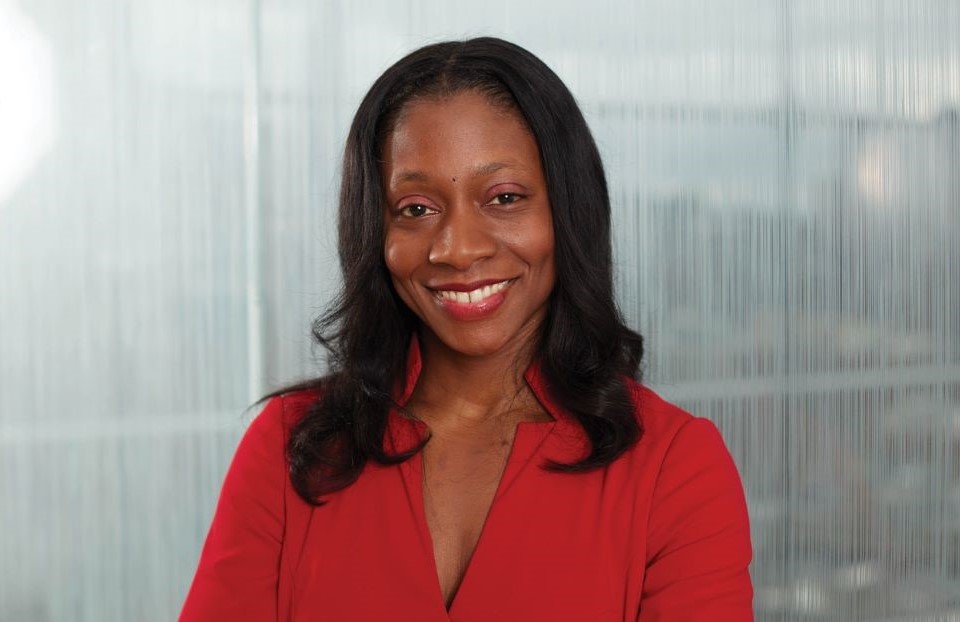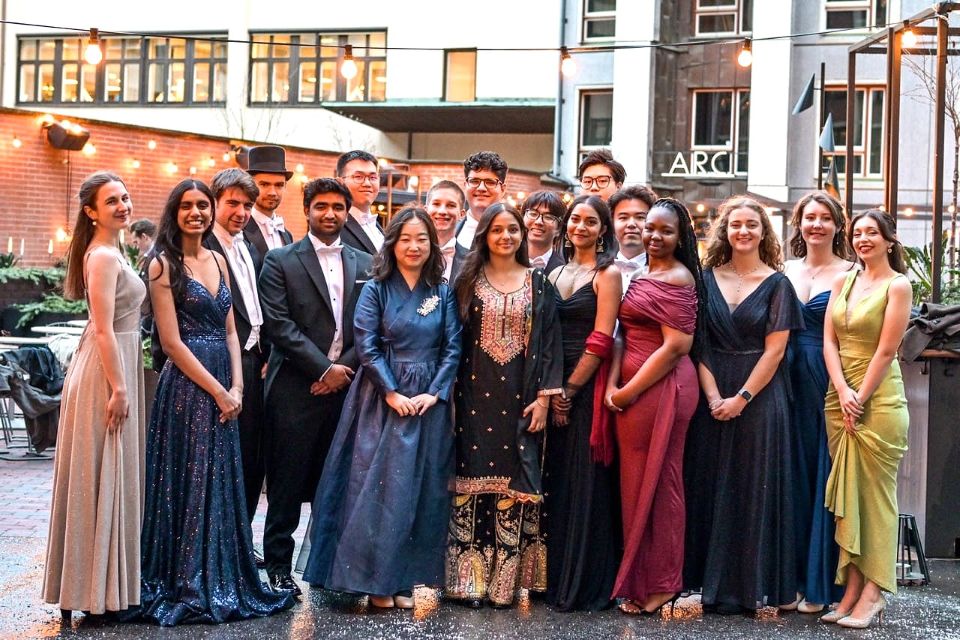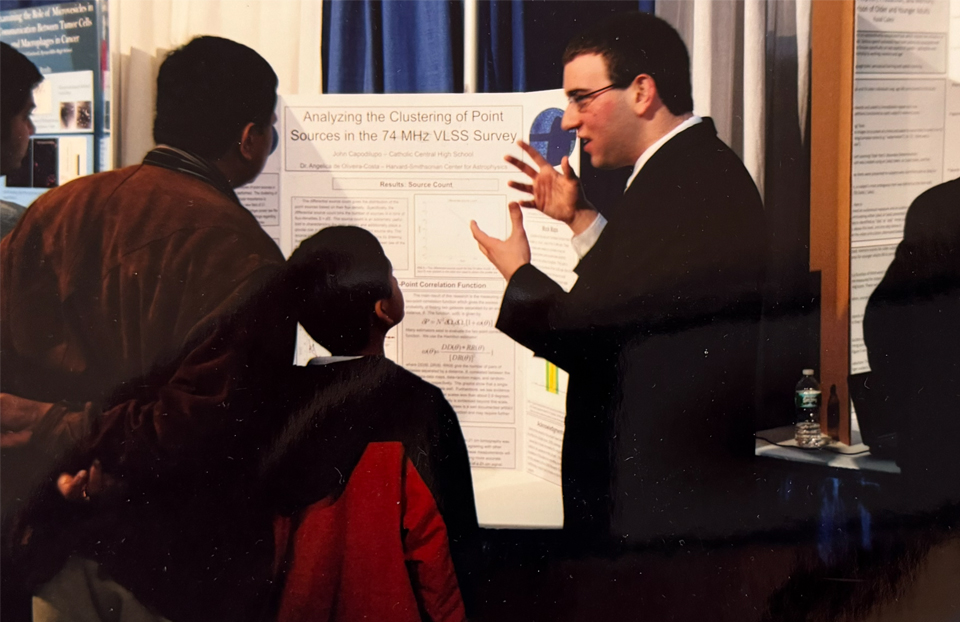Celebrating Pride: Q&A with three inspiring LGBTQ+ scientists
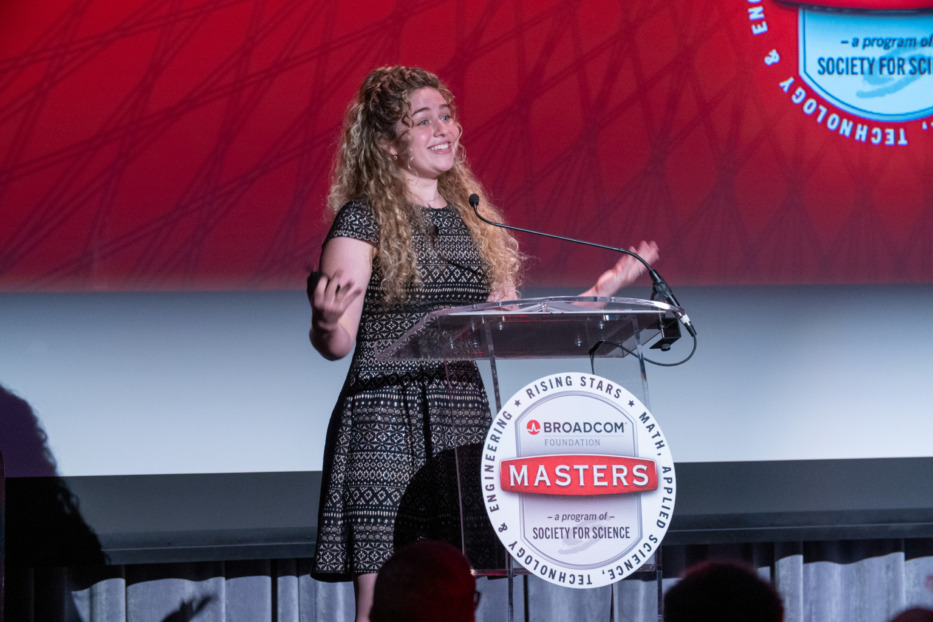
In honor of Pride Month, we’re sharing the voices, experiences and achievements of three LGBTQ+ alumni of Society for Science programs. They share insights into their current work, how their identities have shaped their paths, and their advice for the next generation. Read on to hear directly from them about what Pride means in the context of their careers and communities.
Ahmad Perez
(STS 2019)
What are you up to right now?
I’m currently focused on leading Islip Forward, a grassroots organization I founded to connect, inform and empower communities across Long Island. We’ve built digital tools and storytelling platforms that have reached hundreds of thousands of residents — helping people stay informed, get involved and see themselves as part of the solution. Whether it’s through town halls, local campaigns or community mapping tools, our goal is to make civic engagement more accessible and meaningful for everyday people. I’m also continuing to work in environmental justice, supporting projects that are driven by and for frontline communities.
You were recently part of the Biden Administration. What was your role there?
I served as a Special Advisor for Implementation and Climate Justice at the U.S. Environmental Protection Agency. At the time of my appointment, I was just 21 years old, making me one of the youngest White House appointees in the EPA’s history. My role focused on helping implement key elements of the Inflation Reduction Act and ensuring that the benefits of federal climate investments reached the communities that needed them most. It was an incredible experience to bring a youth and community-grounded perspective into high-level policymaking.
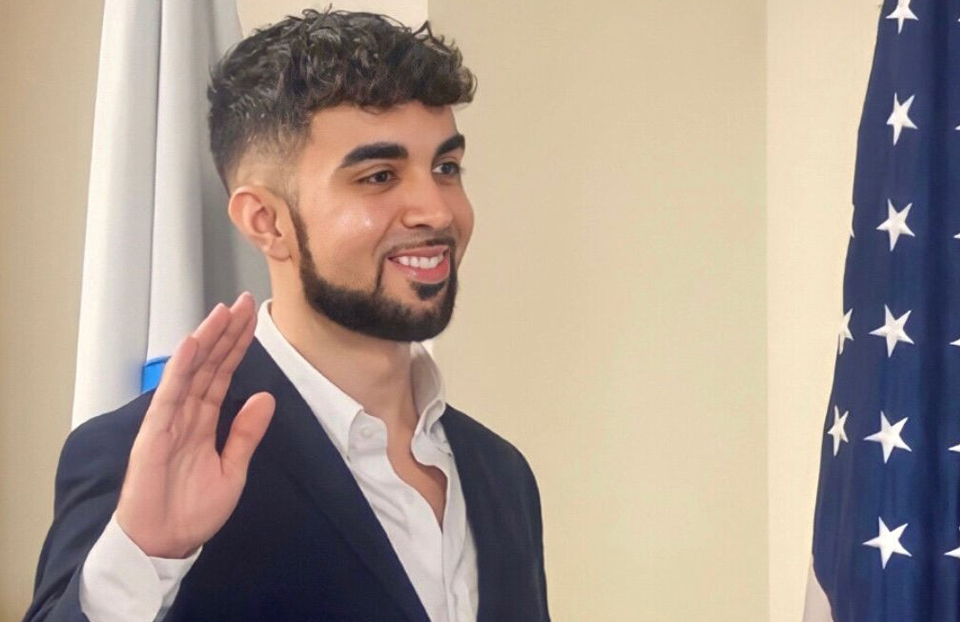
(STS 2019) Courtesy Photo of Ahmad Perez
Has your experience as a member of the LGBTQ+ community shaped your perspective or interests in science in any way?
Yes, absolutely. Being LGBTQ+ has taught me to approach systems with a critical lens and a deep sense of empathy. It’s made me more aware of who is included—and who is often left out—when science is applied in the real world. That perspective has pushed me to ask harder questions and to always consider the human impact behind the data. It’s also made me more committed to ensuring that solutions are shaped by the people most affected, not just those with the most credentials.
What kinds of support (whether from peers, mentors or teachers) have made a difference for you in school and in your career?
Mentorship and community didn’t just guide my path—they saved it. In high school, I was a kid from Brentwood, New York, who often felt like I didn’t belong in the rooms where big decisions were made, but I had teachers who looked past my self-doubt and told me I was capable of more. They pushed me to take risks—like applying to national science competitions like the Science Talent Search—even when I didn’t see myself as someone who could win.
Later, I found mentors who didn’t just teach me, they opened doors and walked beside me through them. And just as powerfully, I had friends and peers who reminded me that staying rooted in where I came from wasn’t a limitation—it was my superpower.
Every step I’ve taken was possible because someone believed in me before I believed in myself. That kind of support is everything.
What would you say to a LGBTQ+ student who is interested in STEM but unsure if they belong?
You belong—and not just as an observer, but as a leader and innovator. Your perspective is valuable precisely because it’s different. STEM is about solving complex problems, and that takes people who can think outside the box, challenge assumptions and bring empathy into the process. If you’re questioning whether there’s space for you in this field, let me say clearly: there is. And if you can’t find that space, don’t be afraid to build it.
Eleanor Sigrest
(BCM 2016,ISEF 2020, STS 2021)
You just graduated from Stanford. What’s next for you?
While I technically walked at my graduation ceremony, I still have one more quarter left to finish both my bachelor’s and master’s degrees. When I started at Stanford, I set a goal to complete the coterminal program and graduate in about four years so I could be on track for the astronaut application cycle, which requires a minimum of a master’s and four years of experience. By the time the next round opens in 2028, I’ll be qualified and ready to go!
What research are you working on now?
I’m continuing my research on microgravity slosh mitigation. After flying an initial experiment for my STS research project, I launched two follow-up experiments with the Blue Origin, an American space technology company. One flight was NS-23, which enabled me to see how well my payload survived under anomalous conditions. The second flight made it to suborbital altitude, and I was able to collect about three minutes of pure microgravity data. Analyzing that data raised some new questions about the material properties of the tank coatings I used, so I’ve been diving deeper into that side of the problem.
Has your experience as a member of the LGBTQ+ community shaped your perspective or interests in science in any way?
Definitely. Being queer taught me early on how to navigate spaces where I didn’t feel seen, and that’s surprisingly similar to how I’ve felt in many research spaces. I’m constantly carving out my own path, questioning the status quo and learning how to advocate for ideas that aren’t always expected.
What kinds of support (whether from peers, mentors or teachers) have made a difference for you in school and in your career?
The most meaningful support I found didn’t come from official meetings or programs, but from small, everyday interactions, especially with other queer folks. Finding people I connect with in unexpected spaces is powerful, and getting to share those experiences builds a kind of resilience that’s hard to teach any other way.
What would you say to an LGBTQ+ student who is interested in STEM but unsure if they belong?
You absolutely belong here. The problem is that societal systems weren’t built with queer people in mind, and in lots of cases, built against you. This goes for more than just the LGBTQIA+ community. While it is uncomfortable, especially at first, I try and remind myself that change often starts with discomfort. Your perspective is part of what science needs to grow.
Jo S.
(BCM 2021, ISEF 2022–2025)
Can you tell me about your current research and what excites you most about it?
I am currently working with the painted lady butterfly to see how blue light impacts their development. I love my research because it’s something that seems so small in passing but snowballs into something much greater! From insects to crops to farms to countries, people tend to underestimate just how much even a small action impacts the world.
You are a high school senior. Where are you heading to college next year and what do you plan to study? Do you plan on continuing your research?
I’m going to the University of California, Davis for entomology! I plan on continuing my research, and I’m hoping I can expand my research and get my ideas applied in order to help the environment and others.
Has your experience as a LGBTQ+ student shaped your perspective or interests in science in any way?
It has. Science kind of became the place I turned to when I had no one else: when I talked about research and data it didn’t matter how anyone else saw me. My whole life, I was told all of the things I couldn’t do, but science always encouraged me to do the impossible. It was freeing. I wasn’t just “some girl” instead I was a man who could look into the eyes of other men, women and people around me as an equal. I know that in the future I will never be ‘Ms. or Mrs.’ and instead I will be the Dr. I was always meant to be.
What would you say to another young LGBTQ+ student who is interested in STEM but unsure if they belong?
Do not give up. Your vision and ideas are worth more than the doubts that plague them. So many people do not want to hear your voice, but they need to: no one wanted to listen to Ignaz Semmelweis when he advised surgeons to wash their hands and now it’s that very thought that saves so many lives. You aren’t always going to feel like a true scientist, but you are, and if someone doesn’t want to respect you, then they don’t deserve your brilliance.
